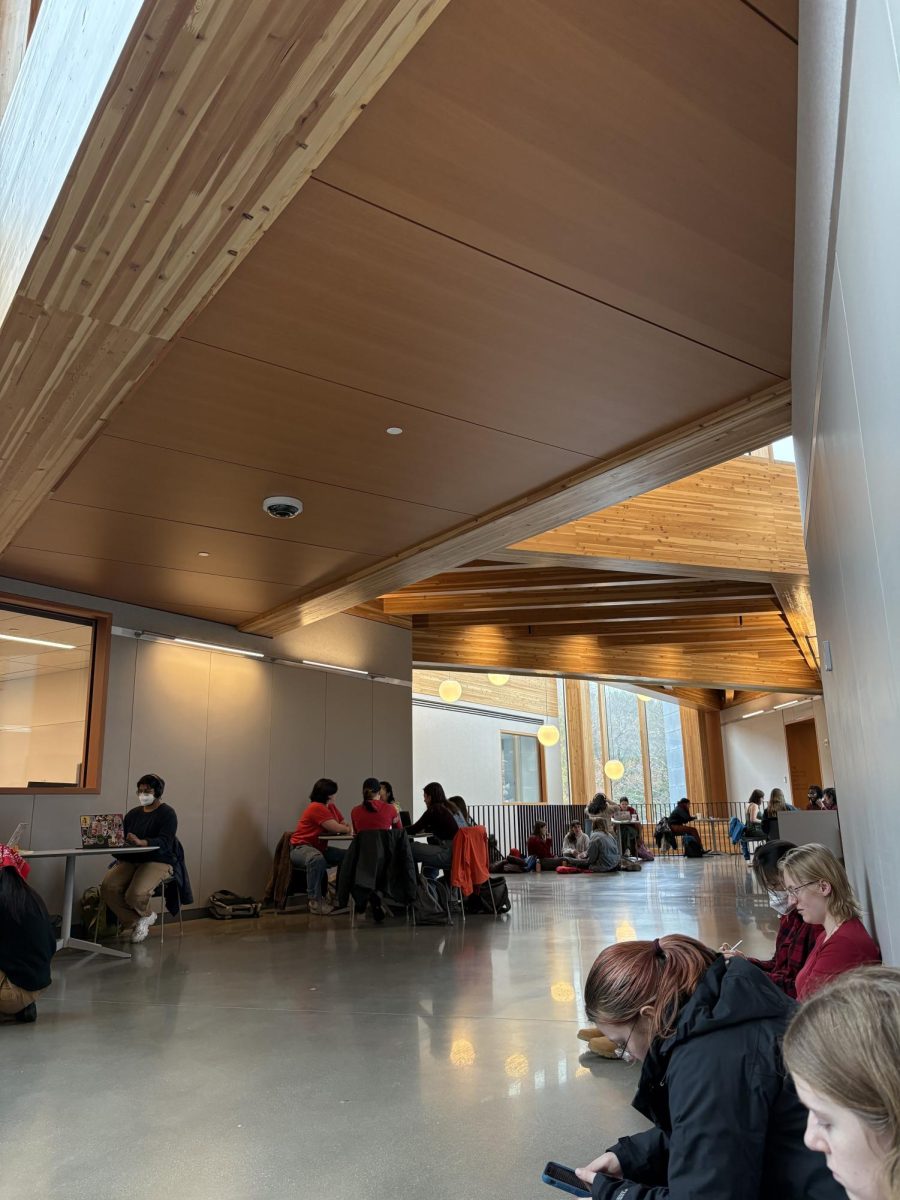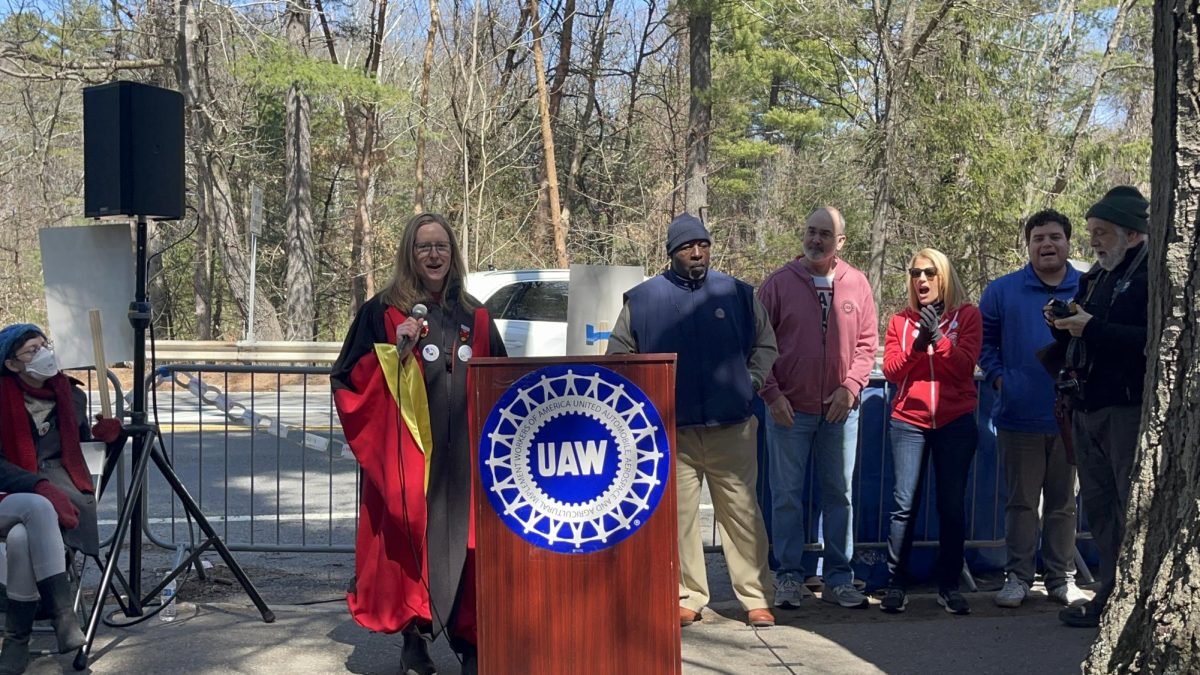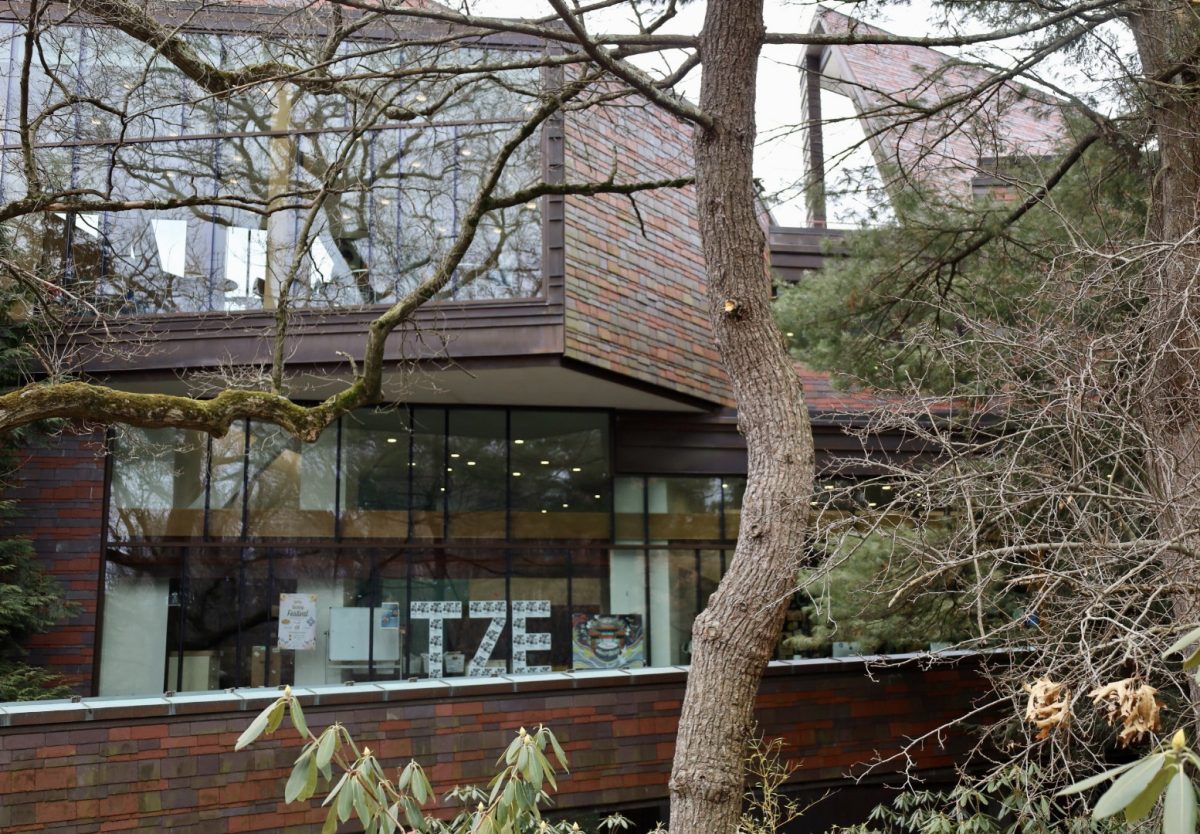Notifications sent
At 7:00 AM on Thursday, Mar. 27, the Office of the Provost announced that many non-tenure-track courses would be reduced in credit from 1 to 0.5. Provost Courney Coile’s plan is aimed at granting students opportunities to continue receiving credit this semester while the strike is ongoing. As a result, students who fell under the 3-unit minimum, required to be fully enrolled, had to register for additional classes 8 weeks into the semester.
Students and tenure-track (TT) faculty were made aware of the new academic plan at the same time, with the email announcement sent Thursday morning.
Tenured faculty and department chairs told the News they were not informed of this plan ahead of time and had to inform the Provost’s Office of whether or not they would open their courses for registration by 6 pm that day.
A tenured professor in a STEM department explained that while faculty had a short Zoom with the Provost, many of their questions were still left unanswered regarding the credit plan.
“Confusion remains about how theses and independent studies should proceed if students have BUE [bargaining unit employee] advisors or committee members,” they said.
Additionally, many departments could not find time to meet and discuss how to proceed prior to the response deadline.
“Everyone had a full day of classes and meetings planned already with no open meeting times to call. We tried to triage it over email,” said the STEM professor.
Nikhil Rao, Associate Professor of History and department chair, elaborated on the confusion among TT faculty on how to proceed.
“I interpreted the Provost’s email, which was addressed to all tenure-stream faculty, to mean that faculty members would decide for themselves whether to admit new students into their courses,” said Rao.
Banu Subramaniam, chair of the Women’s and Gender Studies (WGST) department, shared with WGST students that she was traveling for a talk and meeting out of state when they received the Provost’s message. Subramaniam did not receive a response to a request to the administration for more time.
The Class Deans told the News that they were similarly informed on Thursday morning, attributing the timing of the notification to the College’s need to roll out the policy so quickly.
“Given the pace of these developments, the Class Deans were not involved in the planning process,” the Class Deans Office said.
The office told the News that the Provost’s Office met with the Class Deans on Thursday morning to share the details about the credit changes and registration policy.
Since then, the Class Deans have been in the process of supporting students.
“[We] have responded to hundreds of student emails, participated in Zoom sessions, held individual meetings, and worked closely with campus partners to gather information and provide guidance.”
Announcing plans
On Wednesday, Mar. 26, the Registrar’s Office sent a message to students telling them that if the strike began on Thursday, students in classes taught by striking instructors would “receive information from the Provost and the Registrar on Thursday morning about how to proceed.”
After the Provost’s email announcing the credit reduction plan was sent, the Class Deans sent an email at 9:40 AM telling students, “While we do not have all the answers at this moment, please know that we are working closely with campus leadership to navigate this situation as smoothly as possible.”
In an email statement to the News, a spokesperson for the College stated that the reduced credit plan was put in place to ensure that the College would “be able to demonstrate to various outside agencies that our students are earning credits in a timely way in order to make progress toward their degree.”
“Since the length of the faculty strike at Wellesley is currently unknown, the College has developed a plan that will be effective no matter what the duration of the strike may be,” the spokesperson said. “The plan must be implemented now for students to have enough contact hours to support the 0.5 credit.”
The College also noted, “We are depending on the tenure-stream faculty to offer these classes and on students to enroll in them.”
Provost Courtney Coile echoed this statement in another email sent on the evening of Mar. 27. In this email, she stated that the policy was necessary for students to maintain full-time status for financial aid and visa eligibility purposes.
A difficult choice for faculty
Faculty reflected on the complicated decision to open up seats in their courses to students.
A STEM professor described the plan as “an alternate way to make up for replacing labor lost when courses were canceled or put on hold”. They noted that while faculty had a “sense of urgent concern” for students whose financial aid or visa status may be at risk, there was no way for professors to know who these at-risk students are, making it “impossible to know who to make course seats for”.
Echoing this sentiment, a professor of Humanities stated, “I was conflicted between wanting to support my NTT [non-tenure track] colleagues and taking care of our students who are in danger of being deported or losing financial aid.”
Many professors have expressed concerns about the feasibility of adding students to in-progress courses and the increase in workload for tenured faculty. A STEM professor told the News, “There was a strong sense that adding students to classes would be disruptive among faculty who said they didn’t want to do it.”
Subramaniam stated, “There should be a path forward where we honor the legal right of BUE faculty to strike while not imperiling students or adding to the labor of already over-extended tenure-stream faculty.”
Faculty also argued that educational quality was being compromised in the administration’s credit reduction decision.
“A good education is not a collection of random curricular units. All of us have worked together to create an educational plan for you, and you have every right to be able to fulfill those plans,” Subramaniam said. “Forcing you to take an unrelated 0.5 unit course is not a sound solution.”
Implementing plans
The College scheduled course registration for the rest of the semester for Saturday, Mar. 29. On Friday, Mar. 28, the Registrar’s office and Class Deans hosted two drop-in Zoom sessions to answer registration questions.
The Registrar’s office’s email on Friday night told students, “Later this evening, you will receive an email notifying you that these courses [for Saturday registration] are visible and searchable in Workday.” This notification would also indicate that registration appointments and personalized documents for each student enrolled in a course taught by a non-tenure track faculty member would also be available on Workday.
At 7:09 AM on Saturday, Dean Shannon Butler-Mokoro sent an email saying that there were “some errors on last night’s communication,” telling students that if they saw errors in their unit status to email the Office of the Registrar, who could fix those issues.
Registration later that morning was split into three time slots, allowing last-semester seniors, students at risk of falling below 3.0 units for the spring semester to register first at 10:00 AM. The second slot prioritized all other class of 2026 students, and the third slot prioritized all other class of 2027 and 2028 students.
In Senate on Monday, Mar. 31, Provost Coile updated the community on Saturday’s registration.
“After registration, only 30 students are at risk of falling below 3.0 units.”
The Provost’s Office is following up with these 30 students individually. No number has been given on how many students were at risk before Saturday.
Regarding the rushed registration on Saturday, Coile said, “Everybody did the best that they could.”
Contact the editors responsible for this story: Sazma Sarwar and Valida Pau.




